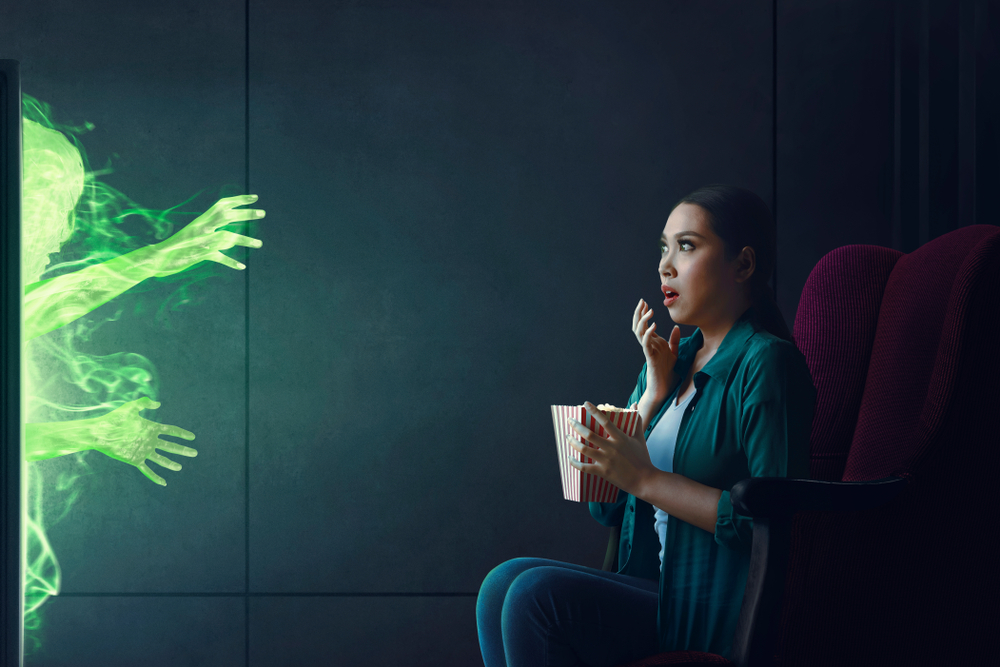Horror films are designed to elicit certain emotions, because, as explained by Healthline, “horror movies contain psychological tricks that create illusions of suspense and danger through the manipulation of images, sound, and story.” This occurs because “our brains are continuously anticipating and preparing us for action in response to threat, and horror movies exploit this expertly to enhance our excitement.” Even though horror movies may seem harmless, the stigma and stereotypes that they sometimes perpetuate can be wildly damaging. Studies consistently show that both entertainment, such as horror movies, and news media provide overwhelmingly dramatic and distorted portrayals of mental illness that emphasize dangerousness, criminality, and unpredictability. In the absence of actual experience with people with mental illness, many people are introduced to mental illness through mass media, like movies, and rely on the media for their perceptions of those who have mental illnesses. Unfortunately, horror movies consistently and erroneously depict people with psychiatric disorders through exaggerated, inaccurate, and comical images, as well as provide incorrect information about mental illness. This has resulted in “the belief in the general population that persons with psychiatric disorders are uncontrollable and dangerous and should be feared and avoided.” However, research indicates that only a minority of those afflicted with mental illness commit severe crimes. Not only do horror films misrepresent illnesses, but they also turn medical facilities, which are safe environments for vulnerable people, into something to be feared. The Mental Health Foundation asserts that social stigma can exacerbate one’s mental health issues, making it more difficult to recover, and that “nearly nine out of ten people with mental health problems say that stigma and discrimination have a negative effect on their lives.” The frequently negative and imprecise portrayals of mental health conditions in horror movies reinforce mistaken beliefs and myths about mental illness.
For Information and Support
Every family in need of mental health treatment must select a program that will best suit the needs of their family. When one member of a family struggles, it impacts everyone in the family unit. To maximize the benefits of treatment we work closely with the entire family to ensure that everyone is receiving the support they need through these difficult times. Seeking help is never easy, but you are not alone! If you or someone you know needs mental health treatment, we strongly encourage you to reach out for help as quickly as possible. It is not uncommon for many mental health difficulties to impact a person’s life, long term. Pursuing support at the beginning of one’s journey can put the individual in the best position to learn how to manage themselves in a healthy way so they can go on to live happy and fulfilling lives.
OUR KNOWLEDGEABLE ADMISSIONS TEAM CAN BE REACHED 24/7 AT INFO@PACIFICRTC.COM OR CALL: 800-531-5769 We are available to answer any questions you may have regarding mental health treatment and our residential program, anytime. Contact us today using the form to the right.






